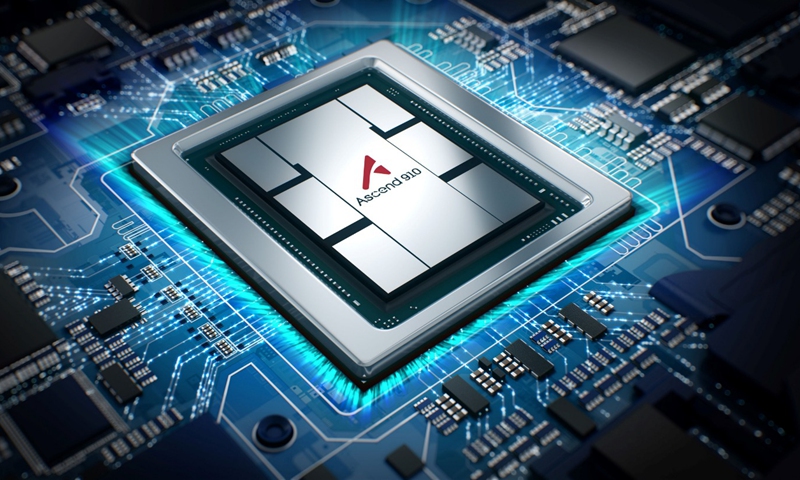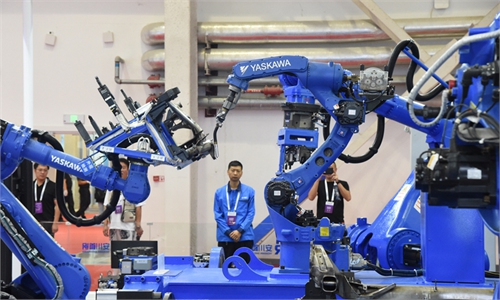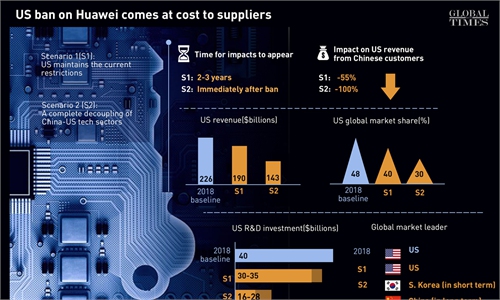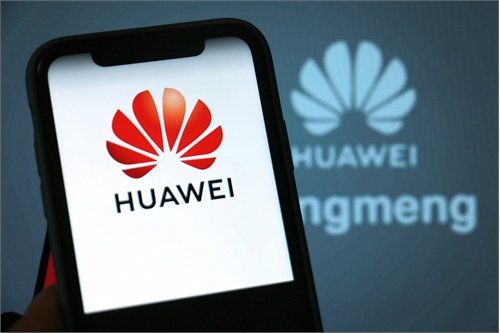
The artificial intelligence processor Ascend 910 provided by a photo released from Huawei, August 23, 2019.File photo:Xinhua
Executives from Huawei including founder Ren Zhengfei visited the Chinese Academy of Sciences (CAS) recently to discuss fundamental research and core technology development with CAS' experts and scholars, according to the Bureau of Science & Technology for Development under the CAS.
The visit demonstrates Huawei's latest efforts to strengthen independent technology development in partnership with top Chinese research bodies such as CAS, following lessons learned from US technological blocks, experts said.
During the visit, Ren stated that Huawei attaches great importance to its cooperation with CAS. He hopes CAS and Huawei can strengthen scientific exchanges with open attitudes, while exploring the frontiers of science and technology.
CAS dean Bai Chunli also noted that the CAS has carried out "multiple-layer", "broad" and "pragmatic" cooperation with Huawei, with such teamwork having produced good results.
"Huawei is China's brand and pride. I hope Huawei and the CAS can cooperate closely, combining the innovation abilities of CAS and the resources of Huawei to explore frontier technologies," Bai said.
Huawei has been increasing efforts to research independent technologies after finding itself in an awkward situation following the US order limiting the global supply of electronic components to the Shenzhen-based tech giant. Currently, the US government forces global chipmakers using US technology to obtain a license from the US before working on designs for Huawei.
The US sanctions have given rise to market speculations over whether Huawei's business would be severely affected, with the possibility of severe impacts to launches of smartphones installed with high-end chips. Conversely, the sanctions are also forcing China to push technological breakthroughs following the realization that they can rely on nobody but themselves in developing high-end manufacturing and other industries.
"Of course, cooperation with CAS won't help Huawei solve supply problems in the short term, but in the long term it will be of great help to Huawei which is in desperate need of independent technologies," telecom expert Xiang Ligang told the Global Times on Sunday.
He added that China has not been determined enough in the past to research high-end technologies, but the US attacks have caused Chinese companies and institutions to "burn their boats."
According to Xiang, Huawei can help marketize CAS' scientific research results, while the CAS can help Huawei tackle problems in scientific research.
Global Times



